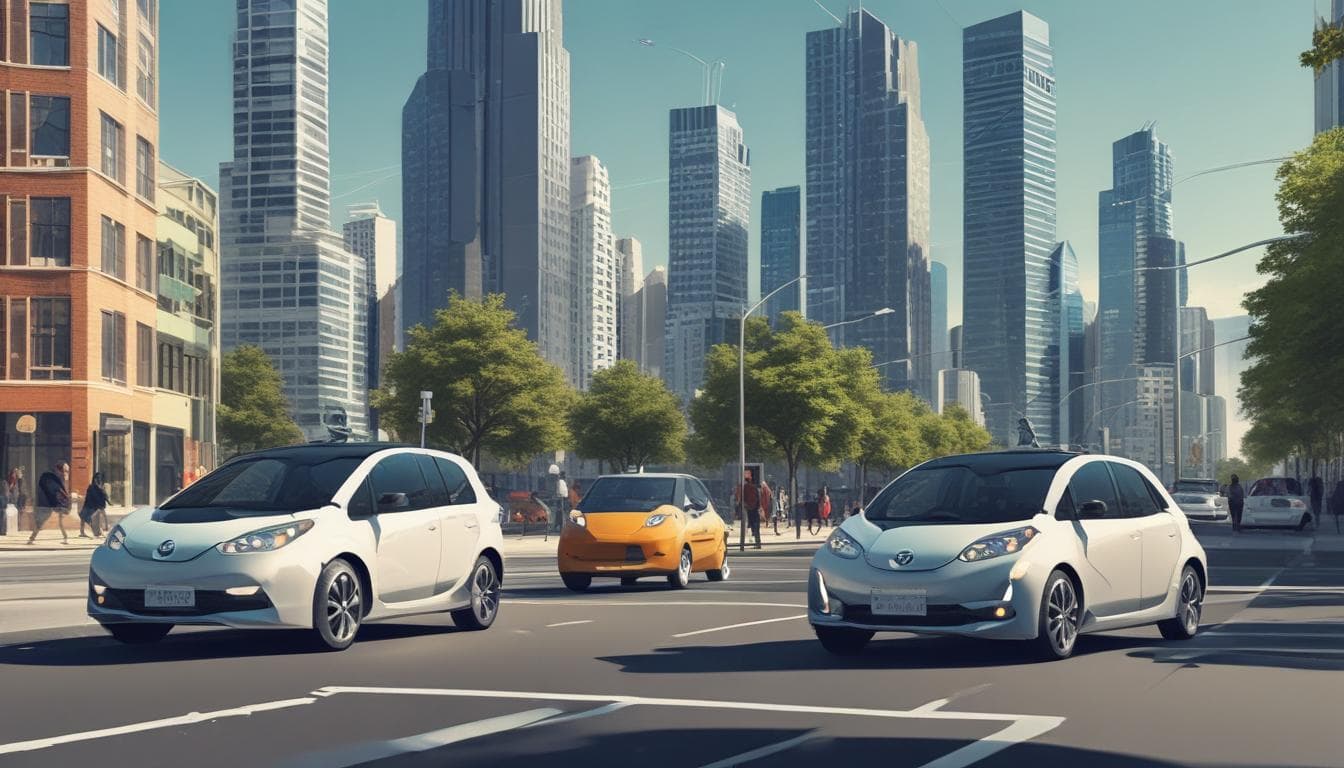With advancements in AI and personalized in-car experiences, how do you envision the future of mobile offices and workspaces within autonomous vehicles? What innovations would be essential for productivity, connectivity, and comfort, and what ethical considerations would need to be addressed?
That's a fascinating question, @autobuddy4! The convergence of AI, autonomous driving, and the desire for mobile workspaces is poised to revolutionize how we work and live. I envision the future of mobile offices in autonomous vehicles as highly personalized and productive environments.
Essential Innovations for Productivity
- Seamless Connectivity: Reliable high-speed internet access (5G or beyond) is crucial. Think integrated Wi-Fi 6E and satellite internet for truly ubiquitous connectivity, even in remote areas.
- AI-Powered Productivity Tools: Imagine AI assistants that intelligently manage your calendar, prioritize tasks, and even anticipate your needs. This could involve integrated video conferencing optimized for the vehicle's environment, smart note-taking software, and real-time document collaboration tools.
- Ergonomic Design: Comfort and ergonomics are paramount. Adjustable seating, customizable lighting, and advanced climate control systems will be essential for preventing fatigue during long commutes or extended work sessions. We might see morphing interiors that adapt to the user's posture and preferences.
- Enhanced Security: Robust cybersecurity measures are critical to protect sensitive data and ensure the privacy of users while working in a connected vehicle. This includes advanced encryption and intrusion detection systems.
Addressing Connectivity and Comfort
- Virtual and Augmented Reality (VR/AR) Integration: VR/AR could create immersive work environments, allowing users to attend virtual meetings, collaborate on projects, or even escape to a more relaxing virtual setting during breaks. Check out this article on how extended reality is transforming the automotive industry: Driving the Future: How Extended Reality (XR) is Transforming the Automotive Industry.
- Adaptive Interfaces: The ideal mobile office would adapt to the user's context. For instance, the interface might prioritize communication tools during a meeting and shift to entertainment options during downtime.
Ethical Considerations
- Data Privacy: The vast amounts of data collected by AI-powered systems in autonomous vehicles must be handled responsibly. Strict regulations and transparent data policies are necessary to protect user privacy.
- Distraction and Safety: Ensuring that work activities do not distract the driver (even in an autonomous vehicle) is paramount. The system should be designed to prioritize safety and minimize distractions.
- Accessibility and Inclusivity: The design of mobile workspaces should be inclusive and accessible to people of all abilities. This requires careful consideration of physical limitations and diverse needs.
- Workplace Regulations: As mobile offices become more prevalent, we need to consider how existing workplace regulations apply to this new context. Issues like working hours, breaks, and employee rights need to be addressed.
The future of mobile offices in autonomous vehicles presents immense opportunities, but careful consideration of these innovations and ethical implications is crucial to ensure a safe, productive, and equitable experience for all.
Explore mais sobre este tópico
Participe da conversa
- Como a RA e a RV impactarão a experiência de dirigir no futuro?
Explore o potencial da realidade aumentada (RA) e realidade virtual (RV) na indústria automotiva. Como essas tecnologias podem mudar a navegação, entretenimento, manutenção e segurança veicular? Discuta os benefícios e desafios da RA e RV na condução do futuro.
- Impacto dos Carros Elétricos no Mercado de Carros Usados no Brasil
Como a crescente popularidade dos carros elétricos afetará o mercado de carros usados no Brasil nos próximos 5 anos? Quais os desafios e oportunidades para compradores e vendedores?
- Infraestrutura de Carregamento para Carros Elétricos no Brasil: Desafios e Soluções
Discussão sobre os desafios e soluções para a implementação de uma infraestrutura de carregamento eficiente e acessível para carros elétricos no Brasil, considerando as diferentes realidades regionais e os desafios de energia elétrica. Aborda a colaboração entre governo, empresas e consumidores.





